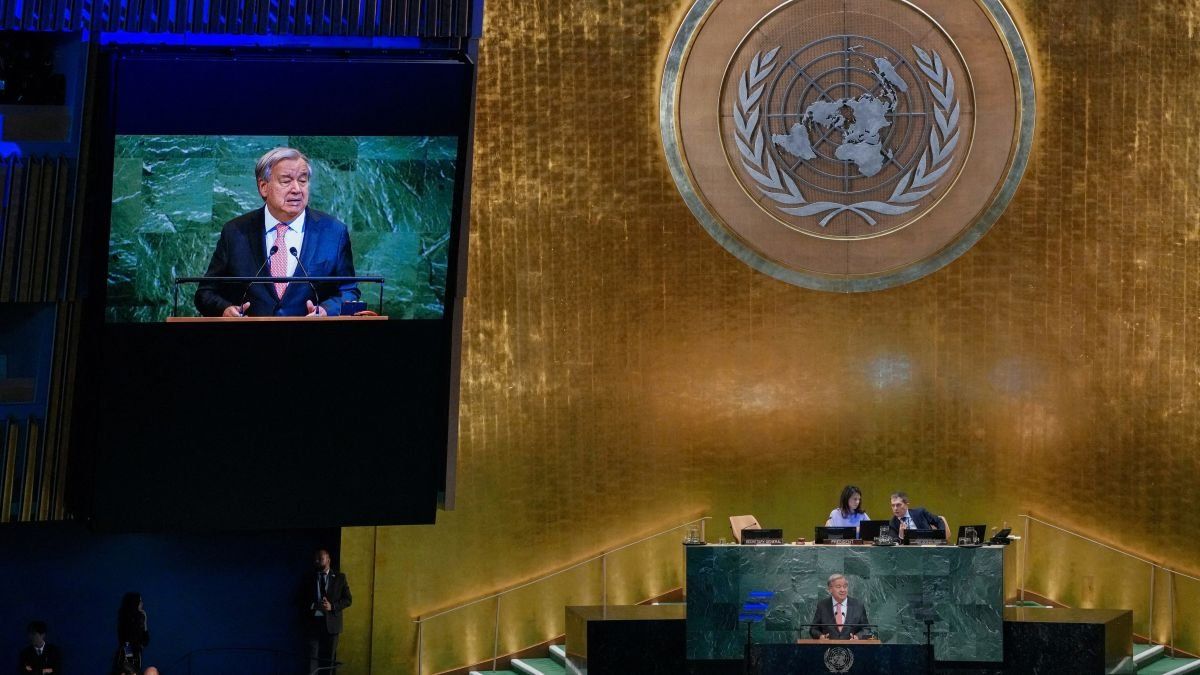If you live in New York City, you are well aware of what is about to descend upon our already crowded streets: the United Nations General Assembly. This is any NYC driver’s least favorite week of the year, particularly if anywhere near Midtown East.
First, some pro tips for navigating UNGA. Happen to be here for the festivities? Our apologies. Before we dive into the chaos within the event itself, let’s confront the mess outside. Do not attempt to drive. Take the subway, or simply walk. Your blood pressure will thank you later.
If you want to do some UN-style people watching, check out Remi43, a combination flower shop and coffee bar on 2nd Avenue where you’re likely to see UN staffers and national delegates imbibing some java and losing themselves in conversation.
Need to chill out for a minute? Grab a bench in Tudor City Park and watch the squad cars and black SUVs whiz by.
While you wait for a train going anywhere better than the jungle of Midtown, grab a cocktail and a cup of clam chowder at the Grand Central Oyster Bar. Tell them GZERO sent you.
OK, now to the real business of the week. World leaders gather against a backdrop of wars that refuse to end, and institutions struggling to keep up. The conflict in Ukraine is grinding through its fourth year with no clear off-ramp. Sudan’s ongoing civil war has displaced millions, and created an ever-growing humanitarian crisis. In Gaza, violence and destruction continue to cascade, fueling divisions about how far the UN can – or should – go in trying to intervene.
On that last point, today Palestinian statehood is front and center as Saudi Arabia and France gather member states in adialogue sure to rattle some in both the US and Israel. A group of Western nations formally recognized Palestinian statehood in unison on Sunday, aiming to build momentum in this effort.
US President Donald Trump will speak on Tuesday during the General Debate, and Israel’s Prime Minister Benjamin Netanyahu, whorecently declared calls for a two-state solution an “absurd prize for terrorism,” speaks Friday. Expect both to make headlines and raise the temperature.
This week is also a referendum on the UN itself. The UN is celebrating a milestone: 80 years since its founding. However, no one is popping champagne at this birthday party. Secretary-General António Guterres has launched the “UN80” reform initiative, a push to streamline operations, make the system less bloated, and confront the reality that the institution is teetering on a financial cliff. Chronic underfunding, late payments and reduced voluntary spending from big members, and ever-expanding mandates mean the UN is being asked to do more with less at precisely the moment global crises are multiplying.
Familiar topics, but fraught conversations. The themes running through this week’s speeches and side meetings will feel all too familiar: how to rebuild trust in multilateralism, whether the Security Council can remain relevant when the great powers that dominate it are themselves locked in confrontation, and whether emerging economies – especially in Africa, Asia, and Latin America – can get a bigger say in shaping the rules.
For all the heady rhetoric, expect plenty of realpolitik. Leaders will use the stage to posture, call out rivals, and test new alliances. Still, in a year when “cooperation” feels like a rare commodity, even modest commitments – on aid, climate, or humanitarian relief – will be hailed as progress.
So, lace up your sneakers, pack all your patience, and prepare for a week where New York traffic might be unbearable, but the geopolitics promise to be a show in themselves.
GZERO will be on the ground (walking, of course) to bring you all the biggest developments of the week.
If you want to learn more about this year’s UNGA, In the latest episode of GZERO World, Ian Bremmer sat down with the secretary-general in the latest episode of GZERO World to discuss the state of the UN, a new report which declared Israel’s actions in Gaza a genocide, and the future of multilateralism is an increasingly fractured and fragmented geopolitical landscape. Watch the full conversationhere.
And for more on the details of UN80, and what it means for the daily operations of the octogenarian organization, here’s GZERO’s interview with Under-Secretary-General Guy Ryder, the man tasked with leading the ambitious reform initiative.
